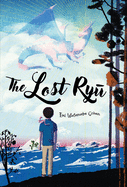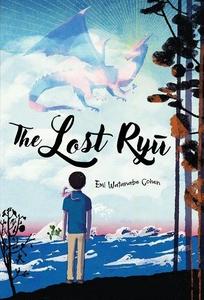
 A 10-year-old boy leads a new friend and both of their dragon companions on a peregrination to save his ailing grandfather in Emi Watanabe Cohen's quiet and healing post-war fantastical debut, The Lost Ryū.
A 10-year-old boy leads a new friend and both of their dragon companions on a peregrination to save his ailing grandfather in Emi Watanabe Cohen's quiet and healing post-war fantastical debut, The Lost Ryū.
Kohei has an "impossible memory": his Ojiisan with tears in his eyes, gazing up at a soaring beast. But the Ojiisan with whom Kohei and his mother live is an angry, emotionally bereft drunk whose organs are failing. And the giant ryū, "beautiful and brutal" dragons, have not been seen "since bombs fell over Hiroshima and Nagasaki almost twenty years ago." The modern ryū, with which Kohei is familiar, are loyal but palm-sized companions, like his own sarcastic Yuharu. Kohei is convinced that seeing a big dragon would "remind [Ojiisan] how to feel" and make him happy again. And maybe, if Ojiisan were not so surly, Mama would be less secretive and removed and Kohei would not feel like he is always walking on eggshells. With Yuharu, new neighbor Isolde and her contemplative Western dragon, Cheshire, the boy travels across Japan to find the mythical birthplace of ryū, Ryūgū-jō. There, the possibility of a dragon baby offers both children hope for a new beginning. It is only once Kohei spends time on the ocean floor entertaining Ryuuji-sama, a ryū-like god, that he realizes how his family's silence affects him: "stories hated staying untold."
Cohen blends genres effortlessly, and the book's quick plot and concision bely the complexity of its emotional expedition. Isolde, who is half-Japanese and half-Jewish, is newly arrived from America and offers fresh eyes on the scarred, post-war landscape of Japan as well as a cultural antithesis to the stalwart stoicism of Kohei's family. Metaphors between the larger banished dragons and the powers of Imperial Japan will likely elude many middle-graders, but Cohen is careful to show readers Kohei's largely introspective emotional processing, which softens the intensity of both Kohei's parental loss and generational trauma. Japanese is incorporated throughout the text, and an author's note addresses the choice of diacritic marks for transliterations.
Cohen's novel is a thought-provoking, magical middle-grade journey that explores sacrifices, faith in allies and the resilient hopefulness of a child. --Kit Ballenger, youth librarian, Help Your Shelf
Shelf Talker: A boy, his new friend and their dragons travel across Japan in search of a giant dragon they believe may heal his grandfather in this hopeful and stirring middle-grade debut.

